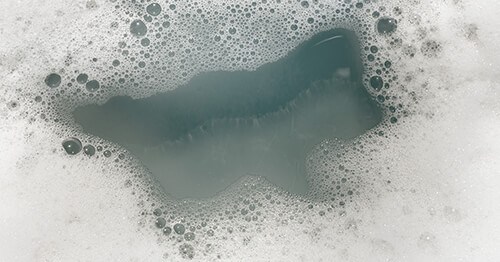Exploring Why Sewage Comes Up Through the Bathtub
Exploring Why Sewage Comes Up Through the Bathtub
Blog Article
How do you really feel in relation to What to Do if Sewage Starts Coming Up Through Your Bathtub?

Sewer back-up in the tub can be a stressful and unhygienic issue for any kind of house owner. Not only is it inconvenient, but it additionally postures severe health and wellness dangers and suggests underlying issues with the plumbing system. Recognizing why sewage is coming up through the bath tub is critical for taking suitable action to attend to the trouble properly.
Introduction to the Concern
Comprehending the Problem
When sewage draws back up into the tub, it's a clear sign of a problem with the drain system. The wastewater that ought to be streaming far from your home is rather locating its way back into your space, which can bring about significant damage and health hazards.
Potential Causes
Several variables can add to sewer back-up in the tub. From blockages in the sewer line to problems with the plumbing framework, identifying the root cause is vital for discovering an option.
Usual Factors for Sewer Backup
Blockages in the Sewer Line
Among the most typical sources of sewer back-up is a blockage in the sewer line. This can happen because of the build-up of debris, oil, or foreign items in the pipes, preventing appropriate flow and triggering sewage to support into your bath tub.
Tree Root Breach
Tree origins seeking moisture and nutrients can infiltrate drain lines via tiny fractures or joints. Gradually, these roots can grow and increase, creating significant damage to the pipelines and causing sewage backup concerns.
Aging Facilities
Older homes might have dated plumbing systems that are extra at risk to rust, cracks, and degeneration. As pipelines age, they become a lot more prone to leaks and obstructions, raising the chance of sewage backup events.
Heavy Rainfall or Flooding
During durations of heavy rainfall or flooding, the drain system may become overwhelmed with excess water, triggering back-ups and overflows. This can cause sewer backing up into tubs and other components inside the home.
Health And Wellness Risks Associated with Sewer Backup
Contamination of Supply Of Water
Sewer backup can infect the water system in your home, presenting a major health danger to you and your family. Exposure to infected water can lead to intestinal problems, skin infections, and various other illnesses.
Spread of Illness
Sewer consists of harmful bacteria, infections, and bloodsuckers that can cause a series of illness, including liver disease, cholera, and gastroenteritis. Coming into contact with sewer or infected surfaces places you at risk of infection.
Mold and mildew Growth
Dampness from sewage back-up can produce ideal conditions for mold and mildew development in your house. Mold spores can aggravate breathing troubles and trigger allergic reactions in sensitive people, making punctual clean-up necessary.
Indications of Sewage Back-up
Foul Odors
Unpleasant odors emanating from drains pipes or fixtures, particularly in the washroom, may show sewer backup concerns. These odors are often strong and relentless, indicating a trouble that requires immediate interest.
Slow Draining Fixtures
Bath tubs, sinks, and toilets that drain pipes gradually or not in any way could be experiencing sewer back-up. If numerous fixtures are impacted all at once, it's likely that the problem originates from a typical factor, such as the major sewage system line.
Gurgling Sounds
Unusual gurgling or bubbling sounds originating from drains when water is running elsewhere in your house are a sign of air caught in the plumbing system. This air build-up can result from sewage back-up and should be explored without delay.
Immediate Actions to Take
Switching Off Water System
In the event of sewer backup, it's essential to shut off the water supply to avoid further contamination and damage. Situate the main water shutoff valve in your house and closed it off till the issue can be solved.
Contacting a Professional Plumber
Taking care of sewer back-up is not a DIY job. Get in touch with a qualified plumber with experience in handling sewage-related problems to examine the scenario and execute needed repair services or cleanings.
Staying Clear Of Contact with Infected Water
Until the sewage backup is resolved, prevent contact with polluted water to avoid the spread of germs and pathogens. Wear protective equipment if you have to remain in the damaged location and wash your hands completely afterward.
Preventive Measures
Regular Maintenance of Sewer Lines
Arrange regular examinations and upkeep of your sewer lines to identify and deal with potential problems before they escalate into significant troubles. This can include clearing out debris, checking for tree root intrusion, and fixing any type of damaged pipes.
Mounting Bayou Valves
Think about installing bayou valves in your plumbing system to stop sewage from receding into your home throughout periods of heavy rainfall or flooding. These shutoffs instantly close when water starts backing up, securing your home from contamination.
Correct Disposal of Home Waste
Prevent purging anything apart from toilet paper and human waste down the bathroom to avoid blockages and blockages in the sewer line. Dispose of grease, oil, and other home chemicals correctly to lessen the danger of plumbing issues.
Tidying up After Sewer Back-up
Sanitation Procedures
Completely decontaminate and sterilize affected areas after sewer back-up to remove dangerous microorganisms and prevent mold development. Use suitable cleaning items and protective gear to make certain secure and efficient clean-up.
Remediation of Affected Locations
Repair any kind of damage to floor covering, wall surfaces, or fixtures brought on by sewage back-up. Depending upon the level of the damage, you might require to change carpeting, drywall, or various other materials to recover your home to its pre-loss condition.
Why Is Water Backing Up in My Bathtub When I Flush My Toilet?
What to do about a sewer line clog
First, don’t bother with plunging. No amount of plunging will dislodge the clog in a sewer line. The clog is too far away. Plungers are for clogs in the toilet itself, not the sewer line. Plus, the most likely causes of a sewer clog are:
Tree roots Flushed toys or feminine products Grease buildup Those items don’t move easily. And in the case of tree roots, the roots need to be cut out of the pipe and the pipe will need to be repaired.
You’ll need a closet auger. A closet auger is a type of plumber’s snake with a protective cover to keep from scratching the delicate porcelain toilet. If the clog is further down, you may need to remove the toilet or use one of your cleanouts to get to the clog.
We also recommend doing a video inspection of the drain to ensure that the cause of the clog has been completely removed. Otherwise, you could have the same problem again in a few days or weeks.
https://mspplumbingheatingair.com/blog/why-is-water-backing-up-in-my-bathtub-when-i-flush-my-toilet

I'm very enthusiastic about Why is Sewage Backing Up Into My Bathtub? and I really hope you appreciated the new blog post. Sharing is caring. You just don't know, you may just be helping someone out. Thanks for taking the time to read it.
Get Started
Report this page